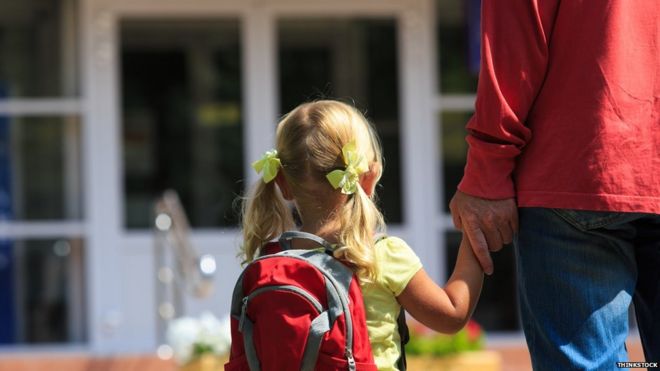
Thousands of smaller primaries and secondaries in England are becoming financially unviable, heads say.
The Association of School and College Leaders (ASCL) says one-form entry primaries and secondaries with 600 pupils or fewer will “fall off a cliff” financially unless new funds are found.
The government says it has been protecting school budgets.
Independent experts say they face real-terms cuts of 8% to cover cost rises in pension, pay and national insurance.
The Institute of Fiscal Studies says having been insulated from real-terms cuts over the last Parliament, schools are likely to feel the pinch more over the current Parliament, with spending per pupil set to fall.
‘Big issue’
A one-form entry primary has about 210 pupils, 65 fewer than the average-sized primary school.
Some 20% of primaries (3,478) in England have fewer than 200 pupils, and 30% (5,037) have fewer than 300 pupils.
The average-sized 11-to-16 secondary has about 970 pupils, while a three-form secondary has about 450 pupils and a four-form primary has about 600.
Malcolm Trobe, interim general secretary of the ASCL, told the BBC: “At some smaller schools, the funding will become such that they would not be able to support their teaching infrastructure.
“They will not be financially viable.
“One-form entry primary schools, and three- to four-form entry secondary schools, are going to find it extremely difficult, especially in low-funded education authorities.
“This size of school is quite common, and they are under real threat.
“They are going to find it extremely difficult to provide a full curriculum and maintain the support staff infrastructure needed to run the school.
“It’s all down to the cost pressures that have come home to roost – the unfunded pay rises, national insurance costs and pension contributions.”
‘Historic unfairness’
He said with continuing delays to the publication of the long-awaited new national funding formula for England’s schools, due now to be introduced in 2018, were really struggling.
Education is devolved in Wales, Scotland and Northern Ireland, so the national governments deal with the funding of their own schools.
And some areas have greater numbers of smaller schools than others. In Oxfordhsire, nearly 40% of primary schools have fewer than 200 pupils, for example.
“The big, big issue is because [the Department for Education] is not doing anything until 2018, they really need to do something for schools who are going to fall off a cliff financially or run into a wall in 2017,” said Mr Trobe.
He suggested schools might find solutions to their funding issues by sharing specialist teachers with a group of neighbouring schools.
Alternatively, they might choose to share some of their support services with other schools.
The Department for Education said: “In reality the schools budget has been protected and in 2016-17 totals over £40bn, the highest ever on record.
“The government’s fairer funding proposals will ensure that areas with the highest need attract the most funding and end the historic unfairness in the system.”
[Source:- BBC]







